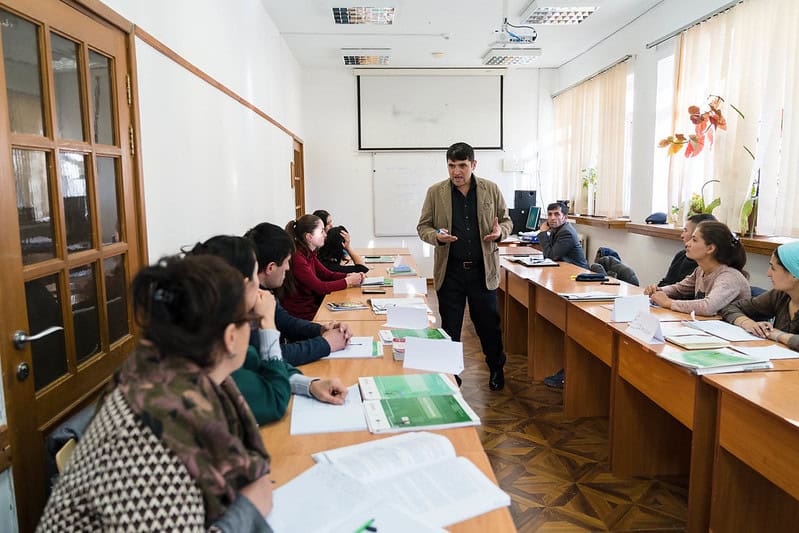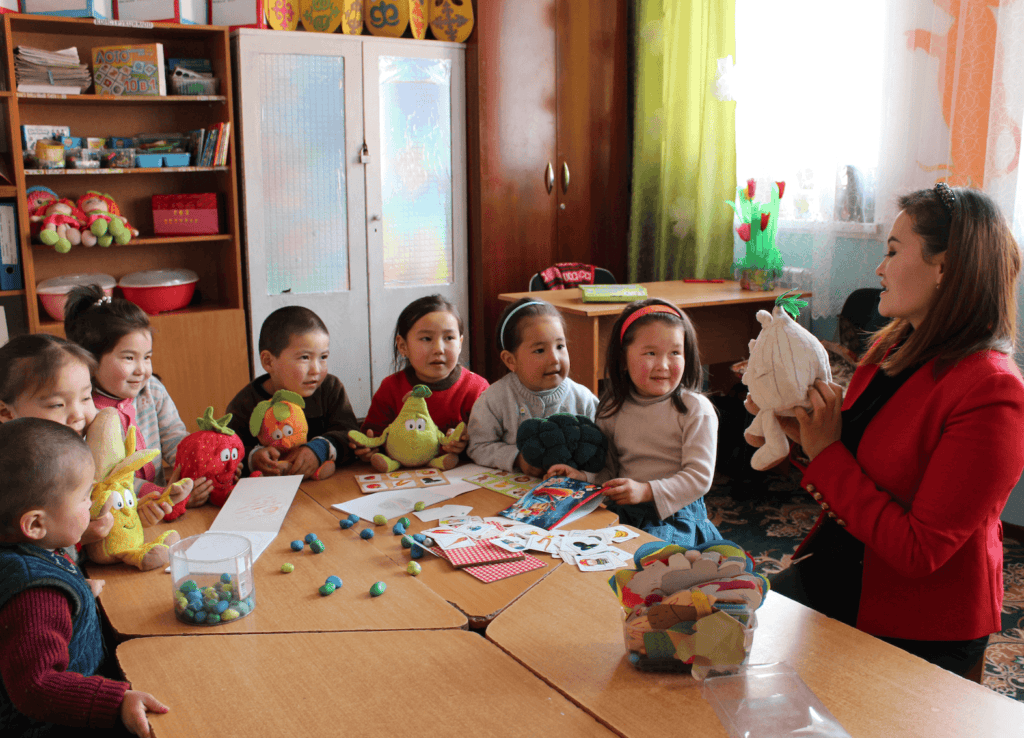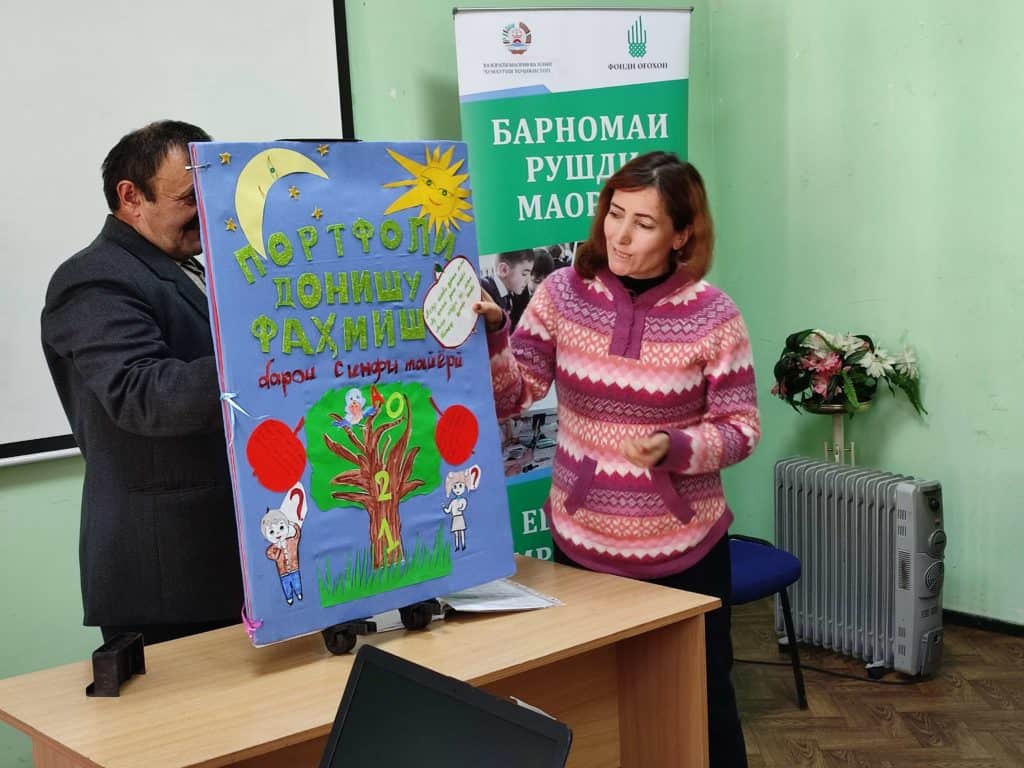The mountains and steppe-land of Central Asia host some of the world’s most beautiful landscapes and vibrant cultures. Yet they also are home to some of the world’s most isolated communities, where the provision of quality, accessible education for all is compounded by economic challenges and the long shadow cast by the COVID-19 pandemic. In such remote areas, evidence-based, locally led approaches are all the more crucial when tackling educational challenges.
This is what makes Schools2030 the perfect vehicle for a new programme aimed at skilling teachers and civil servants across the region and supporting them with the tools they need to improve English language proficiency in their students. The initiative, funded by the UK’s Foreign, Commonwealth and Development Office (FCDO) in partnership with the Aga Khan Foundation and the University of Central Asia (UCA) aims to address critical educational challenges in the Kyrgyz Republic and the Republic of Tajikistan, by fostering teacher leadership, multilingual competencies, and a more resilient education system across Central Asia.

Enhancing Capacity, Strengthening Competency
Entitled ‘Strengthening Education Systems in Central Asia’, the project will work to improve the skills, pedagogical practices and leadership of English language teachers. In this way, the programme aims to strengthen the English language skills of both students and civil servants to enable active engagement in global policy discussions, for example at the recent Schools2030 Global Forum in Bishkek, and other similar convenings.
The programme focuses on two core objectives:
Enhancing Teacher Capacity and Leadership:
- Skilling English language teachers with modern teaching methodologies and pedagogical practices.
- Supporting educators through human-centred design (HCD) to develop innovative, low-cost, and scalable solutions for their classrooms.
- Providing teachers access to the Cambridge Teaching Knowledge Test programme to strengthen their instructional knowledge and practices.
Strengthening Civil Servant Competencies:
- Improving English language proficiency for education sector civil servants to enable active engagement in global policy discussions.
- Offering a six-level certification programme in Conversational English and pathways to international qualifications like the International English Language Testing System.

Responding to National Priorities
The project responds directly to the needs of the two nations by:
- Addressing gaps in teacher quality and teaching practices.
- Supporting multilingual education (English and local languages) as prioritised in national strategic plans.
- Building capacity within education ministries and schools to ensure sustainable, systemic improvements.
The programme will work with 240 teachers in Kyrgyzstan (140) and Tajikistan (100) and 200 civil servants from the Ministries of Education and Science of both countries, focusing on rural and underserved communities. UCA will lead tailored training programmes combining English proficiency and advanced teaching methodologies. This approach will also integrate Schools2030’s HCD toolkit, fostering inclusive and effective learning environments.

Driving for Regional Prosperity
The partnership is poised to create a wide-ranging transformative impact including:
- Improved student outcomes: Adoption of modern instructional strategies will enhance engagement and academic performance in schools.
- Enhanced policy engagement: Civil servants with improved English skills will contribute effectively to global education policy discussions.
- Professional development: A culture of continuous learning will help empower educators and civil servants, strengthening the education workforce.
- Economic growth: A skilled, multilingual workforce will drive resilience and prosperity in the region.
Leveraging Global Expertise
UCA brings its extensive experience in delivering high-quality educational programmes, including Cambridge-certified teacher training and English language courses. Combined with Schools2030’s innovative action research model, FCDO’s technical and funding support and AFK’s strategic leadership, this partnership represents a robust response to regional challenges.

What’s next?
With implementation already underway, training programmes and workshops are rolling out in Kyrgyzstan and Tajikistan. Over the next three years the partnership aims to expand its reach to pre-service teachers and civil servants, utilising a cascading ‘Train the Trainer’ model to ensure sustainability and scalability.
The Strengthening Education Systems in Central Asia programme underscores the power of Schools2030’s unique model for building evidence-based, locally rooted approaches, that can create huge ripples of potential transformation. It also speaks to the need for collaboration across institutions and sectors to drive educational innovation and system-level change. Working together this way, we can build more resilient education systems and support the educators of Central Asia to build a more prosperous future for the region. Stay updated with the project’s progress on our website and social media channels.
Learn more about Schools2030’s work in the Kyrgyz Republic and Tajikistan.
